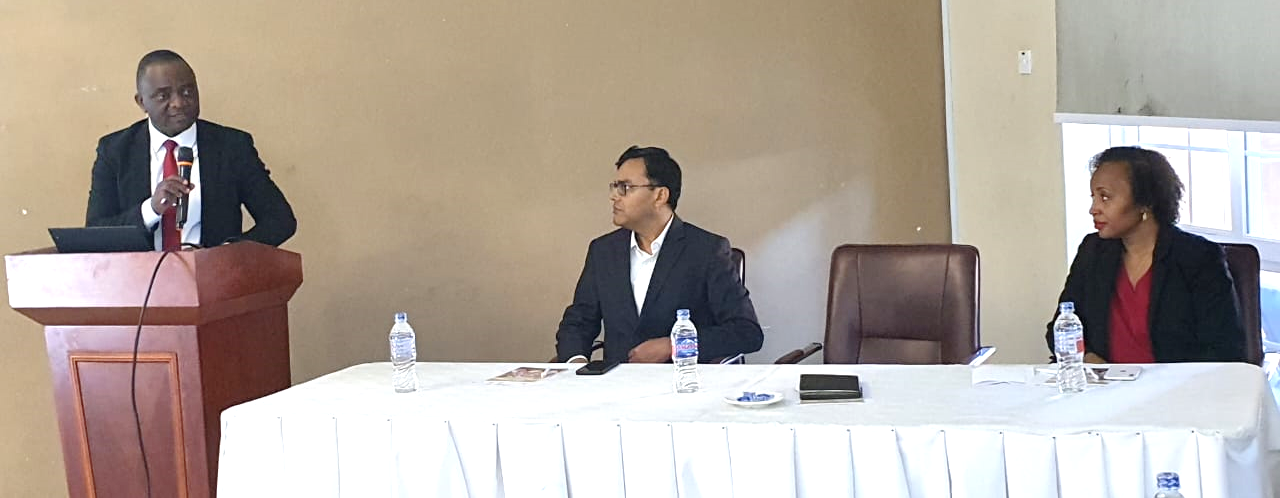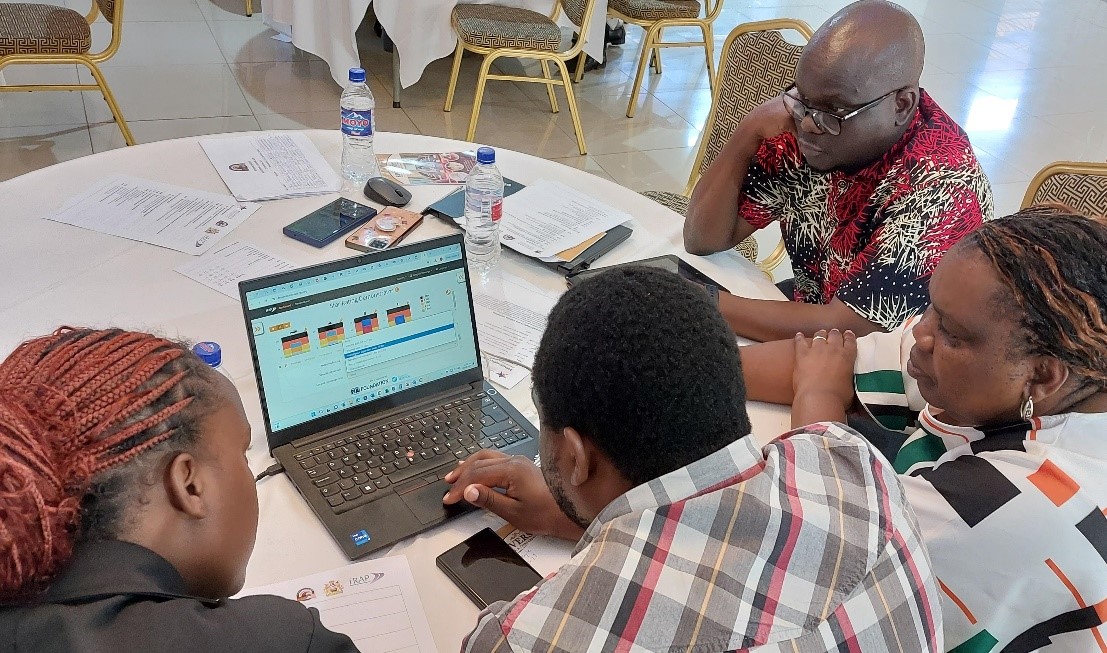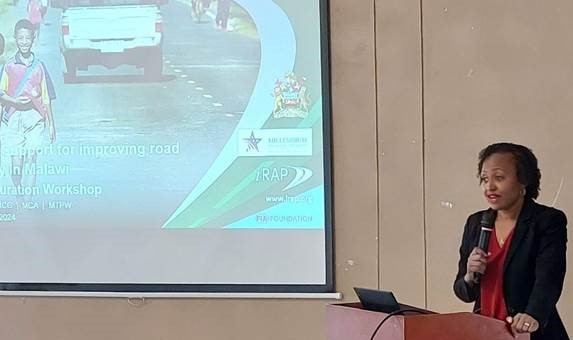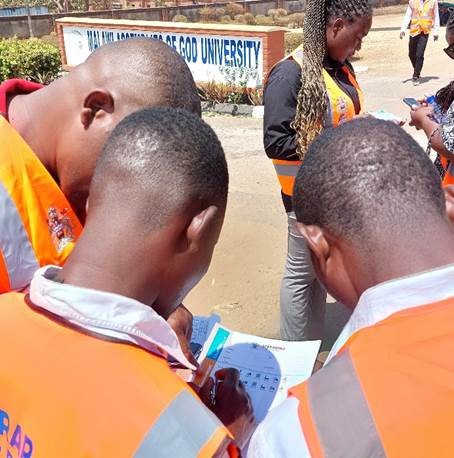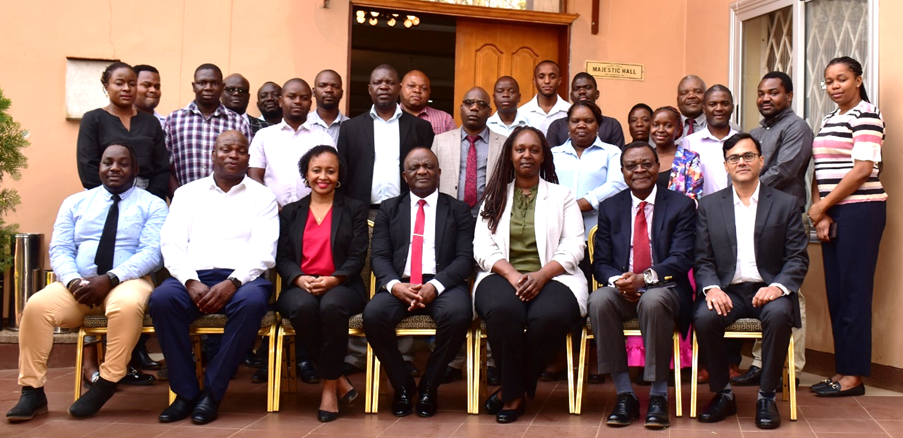Road infrastructure safety is being lifted in Malawi thanks to a ground-breaking $350 million Millennium Challenge Corporation (MCC) compact and five-day iRAP capacity building initiative completed last week with local partners.
Malawi’s nearly 5,000 kilometres of paved roads are plagued by frequent and deadly crashes. Annually, road crashes claim over 4,025 lives and result in nearly 200,000 injuries, costing the country an estimated USD 685 million.
The $350 million MCC Malawi Transport and Land Compact will run from 2024 to 2029 and includes three components to revamp the country’s transportation and land sectors. Of these, the Accelerated Growth Corridors (AGC) Project involves a substantial $228 million investment to upgrade over 300 kilometres of roads across four critical agricultural corridors, with a strong emphasis on improving road safety.
Tied to the compact activities and long-term global iRAP-MCC partnership, a comprehensive five-day inception visit was held supported by iRAP Engineers Jigesh Bhavsar and Racheal Nganwa.
The training was being attended by representatives of the Ministry of Transport and Public Works (MTPW), Directorate of Road Traffic & Safety Services (DRTSS), Roads Authority, MCA-Malawi II, MCC and local NGO Road Safety Alert Foundation (ROSAF), as well as project partners involved in road planning, design, development, operation and maintenance.
The visit included a one-day Inauguration Workshop followed by a three-day intensive iRAP training session focussed on boosting local road safety capacity to eliminate the country’s highest risk roads.
In the opening remarks, Eng. David Mzandu, Principal Secretary, Ministry of Transport highlighted that infrastructure development is vital for enhancing connectivity and access to essential services in Malawi. However, the high incidence of road crashes and the resulting fatalities and injuries pose a significant challenge to realizing the full benefits of this progress.
“It is crucial that we prioritize the development of safer road infrastructure, especially for the new roads being constructed. While no compensation can ever replace the lives lost, we must resolve to equip our roads with the necessary safety measures to protect all road users and reduce these tragic losses. I look forward to the collaborative efforts of this initiative and the positive impact it will have on road safety in our country,” he said.
On behalf of the Millennium Challenge Corporation, Deputy Country Director Khalia Mounsey expressed her gratitude to all stakeholders involved in this important initiative, for their active participation and commitment to improving road safety in Malawi.
“This five-day training program marks a key milestone in our collaborative efforts to build local capacity and address the critical issue of road safety. I am confident that through this partnership, we will make substantial progress toward safer roads and communities. I wish all participants success in this training and look forward to seeing the positive outcomes of our shared efforts,” she highlighted.
As well as skills training in the iRAP methodology and tools, results of Star Rating for Designs (SR4D) assessments for the four AGC Project road corridors were reviewed. Safety treatments identified in the Safer Roads Investment Plans, and the importance of speed management to improve the safety Star Ratings of the designs were also discussed.
A site visit to the CL road near Lilongwe provided the opportunity to undertake a road safety assessment and collect data for later practical analysis in the classroom.
Completing the week, a one-day Star Ratings for Schools (SR4S) training was run with a team from the ROSAF to support their assessment of infrastructure safety around 10 schools on the AGC corridors.
The collaboration between MCC, iRAP, and local and international partners represents a pivotal step towards transforming road safety in Malawi.
Other iRAP-related activities in Malawi to date have included:
- Partner-led iRAP assessments of 530km of an M1 Rehabilitation Project, including Star Rating of Designs;
- Star Ratings for Schools assessments at 16 schools;
- A Memorandum of Understanding with MTPW, ROSAF and iRAP which is guiding future collaboration and capacity building to support Malawi’s National Road Safety Strategy 2022-2030; and
- iRAP training for local stakeholders.
The MCC compact also complements ongoing investments from other international bodies. The European Investment Bank (EIB) is spearheading the major rehabilitation of the M1 national road corridor, while the World Bank is supporting the installation of the DRIVER crash data system, which integrates with iRAP data for improved analysis and safety planning.
By combining substantial financial investment with targeted road safety initiatives and capacity building, the iRAP MCC partnership aims to enhance the safety of Malawi’s roads and support the development of a locally led MalawiRAP Road Assessment Programme.
Through these efforts, Malawi is poised to make significant strides in road safety, saving lives and serious injuries, and fostering safer communities.
Image credits above and below: iRAP
